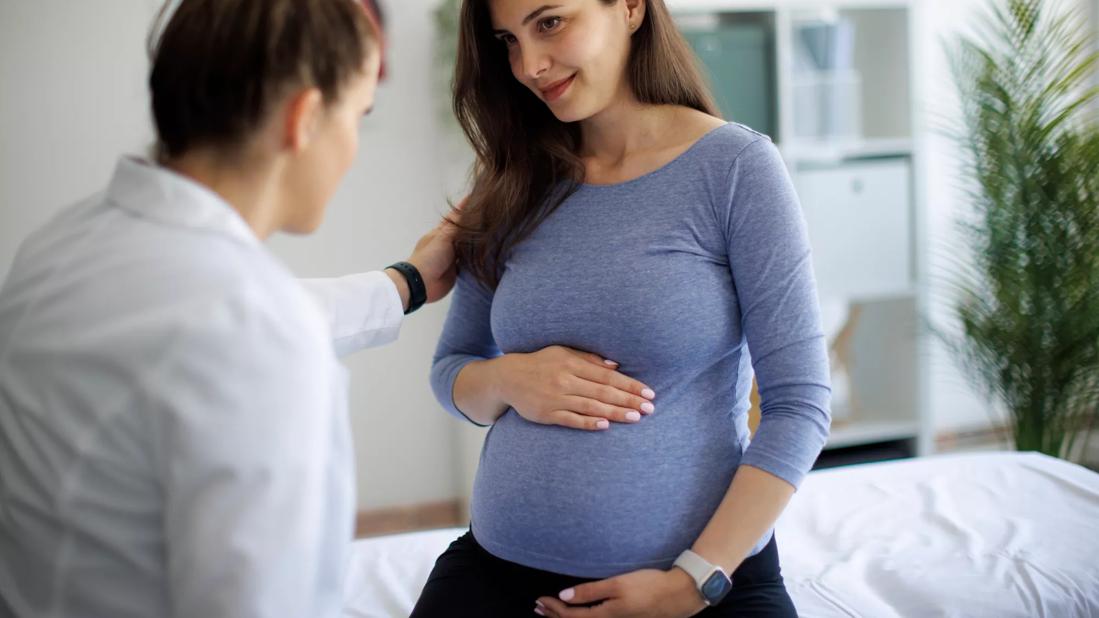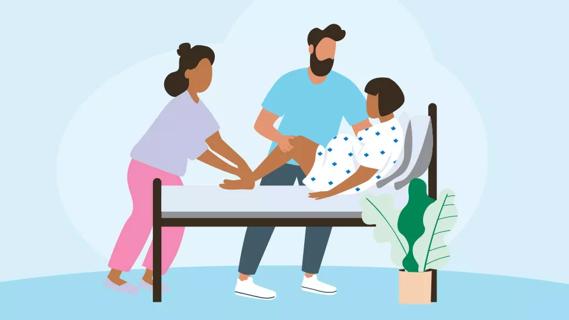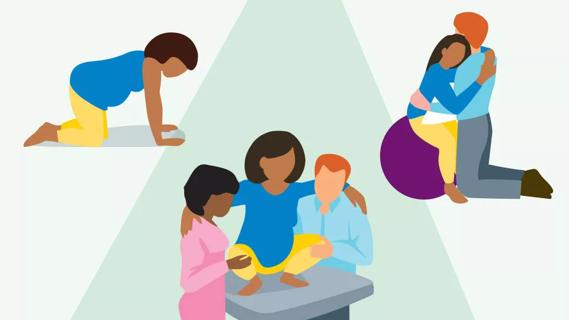Advertisement
Obesity, age and preexisting heart conditions can all raise your risk of cardiovascular disease during pregnancy

Oh, your aching back … and swollen ankles … and sore joints! Pregnancy puts extra strain on your entire body, but there’s something you might not realize that it can affect: Your cardiovascular system.
Advertisement
Cleveland Clinic is a non-profit academic medical center. Advertising on our site helps support our mission. We do not endorse non-Cleveland Clinic products or services. Policy
Most people’s hearts can tolerate the stressors of pregnancy, but the added demands on your body can be overwhelming for some — especially if you have existing heart problems or are at high risk for developing them. In the U.S., about 1 in 3 pregnancy-related deaths is due to cardiovascular problems.
So, what do you need to know? Maternal-fetal medicine specialist, Jeff Chapa, MD, who specializes in high-risk pregnancies, explains what you should know about heart disease and pregnancy.
Pregnancy brings heart-related changes like:
“The changes that your body goes through during pregnancy and the postpartum period can put extra stress on the heart,” Dr. Chapa says, “especially if you have underlying heart disease.”
Here’s a concerning trend you should know about: Cardiovascular disease has become the No. 1 cause of death during pregnancy in the U.S. today. A 2018 study found that heart attacks before, during and after delivery — though still relatively rare — increased by 25% over a 12-year period.
What’s behind this troubling increase in heart-related complications? Dr. Chapa says it’s likely due to a few major factors.
This might sound counterintuitive: How would better medical care result in more heart-related complications during pregnancy? Dr. Chapa explains that advances in medical care allow people with heart issues to have higher survival rates and a better quality of life — which allows them to reach this stage of their lives.
“For people who are born with heart defects, for example, we’re able to fix those surgically and manage them medically pretty well,” Dr. Chapa explains, “so, those individuals are now reaching child-bearing age, enjoying a better quality of life and getting pregnant.”
Types of preexisting heart diseases that could affect pregnancy include:
The average age of first-time mothers in the U.S. has risen over the last several decades, according to data from the U.S. Centers for Disease Control and Prevention (CDC).
“With age comes a higher risk of heart disease and heart attack,” Dr. Chapa notes.
Advertisement
In 2021, the mean age at first birth was 27.3, with more women than ever becoming first-time parents in their 30s and 40s. (At this time, CDC data doesn’t account for the range of gender identities, using only the terms “women” and “mothers” throughout its reports.)
Obesity and related conditions like diabetes and high blood pressure are risk factors for heart disease, Dr. Chapa says — and all of these conditions are on the rise.
A 2020 CDC report found that among U.S. adults ages 20 and over, 41.9% have obesity and 45.1% have high blood pressure (hypertension).
Yes. If you have heart disease (or significant risk factors for heart disease), the best thing you can do is to focus on prevention — before you even get pregnant.
“The best thing you can do to minimize your risk for complications is to optimize your health prior to pregnancy,” Dr. Chapa advises. “If you have pre-existing heart disease or hypertension, that means managing your underlying condition before you pursue pregnancy.”
He recommends that people with significant heart disease have a preconception evaluation to go over the risks related to pregnancy and what can be done to keep you safe.
This may involve seeing both a cardiologist (a doctor who specializes in the heart) and a maternal-fetal medicine specialist (also called a perinatologist, or a doctor who specializes in high-risk pregnancies).
“In the past, women with congenital heart disease were often told that they just couldn’t have a baby,” Dr. Chapa says. “Now, with the proper preconception evaluation and care, many of them are able to make it safely through pregnancy.”
When you’re pregnant, it’s important to pay attention to your heart health. But many of the common symptoms of heart disease and heart attack overlap with many of the common complaints associated with pregnancy, like:
This can sometimes make it difficult to diagnose cardiovascular disease during pregnancy. But a good rule of thumb, Dr. Chapa says, is that if your symptoms get worse and begin to affect your everyday activities, it’s time to touch base with your healthcare provider.
“Early detection of problems can help your healthcare team to manage them and prevent complications down the road,” he emphasizes.
Advertisement
Learn more about our editorial process.
Advertisement

Science is mixed, but if you want to try stretching your perineum, here’s how to do it safely

Walking is a great goal, but how many steps are best for you depends on factors like your fitness level and age

While it’s probably not your most fertile time, it is possible to get pregnant if you have unprotected sex during your period

Plan ahead, pack that bag, be attentive and be an advocate

Sympathetic pregnancy is real and can cause nausea, vomiting, weight gain, fatigue and other symptoms

Sitting, squatting and side-lying may provide a more comfortable labor and delivery

Eating more natural, whole foods can lower your risk of heart and cardiovascular diseases

Everyone’s unique, and there’s no exact checklist of symptoms, but you may feel contractions, cramps and pelvic pressure

Focus on your body’s metabolic set point by eating healthy foods, making exercise a part of your routine and reducing stress

PFAS chemicals may make life easier — but they aren’t always so easy on the human body

While there’s little risk in trying this hair care treatment, there isn’t much science to back up the claims